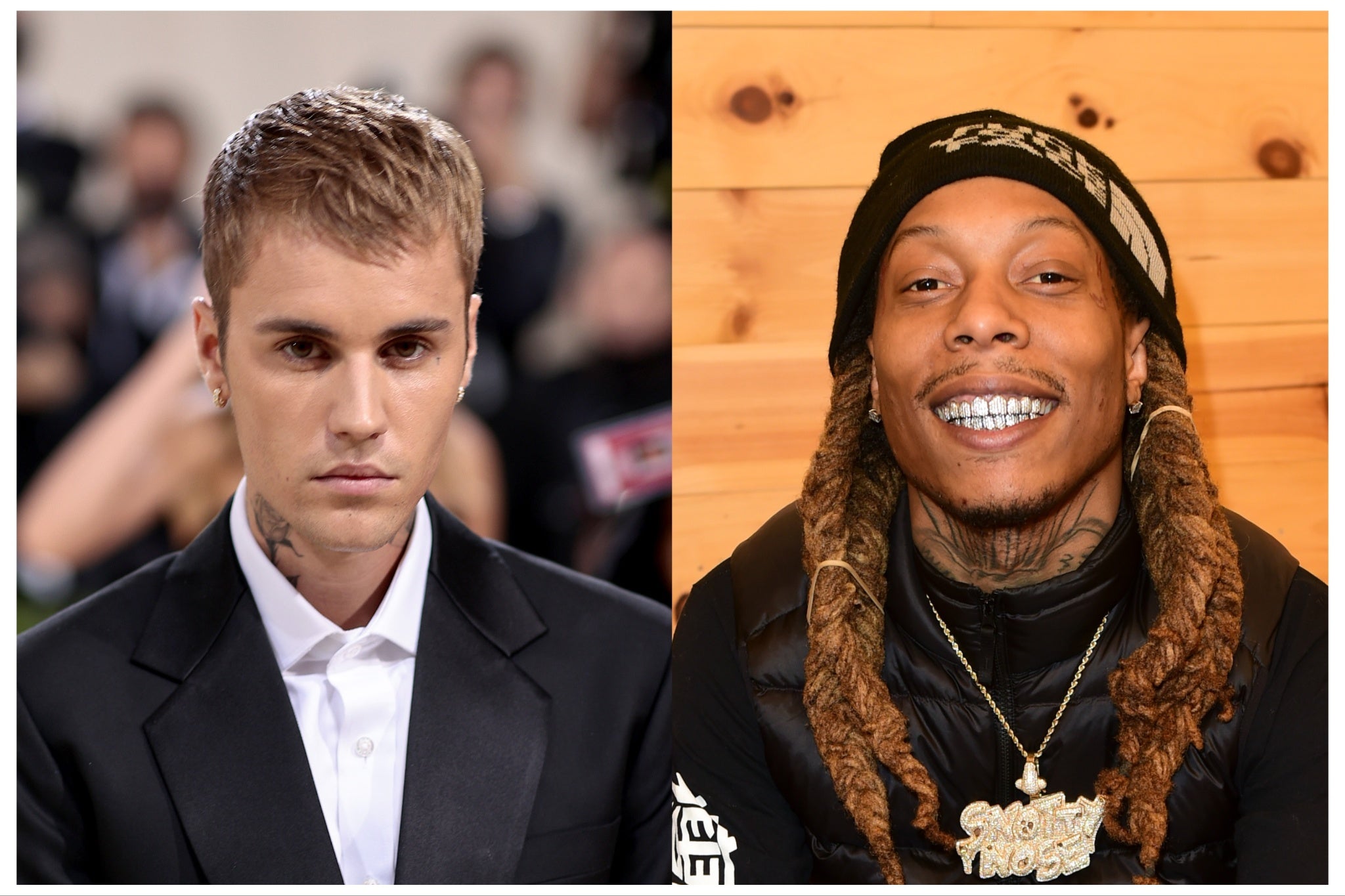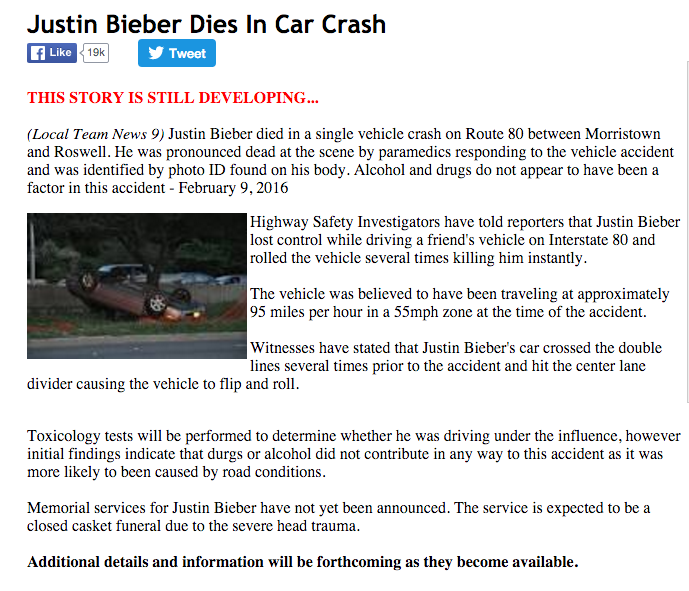Has the world truly lost Justin Bieber? The relentless barrage of rumors, speculation, and morbid curiosity surrounding the pop stars well-being, unfortunately, necessitates a clear and unequivocal statement: Justin Bieber is alive and well. However, the very fact that such questions arise, and the frequency with which they plague the internet, speaks volumes about the pressures faced by celebrities and the complex relationship between fans and the famous.
The digital age has amplified these concerns. The immediacy of social media, the 24-hour news cycle, and the proliferation of misinformation have created a perfect storm for the spread of baseless rumors. A single post, a misinterpreted photo, or a cleverly crafted headline can quickly snowball into a global "news" story, often with devastating consequences for the individual at its center. The fascination with celebrity lives, coupled with the anonymity of the internet, allows for unchecked speculation and the casual dissemination of potentially harmful falsehoods. The relentless focus on Justin Bieber's health, his personal life, and every aspect of his public persona paints a worrying picture of the current state of celebrity culture.
| Category | Details |
|---|---|
| Full Name | Justin Drew Bieber |
| Date of Birth | March 1, 1994 |
| Place of Birth | Stratford, Ontario, Canada |
| Nationality | Canadian |
| Spouse | Hailey Bieber (m. 2018) |
| Genres | Pop, R&B, Teen Pop |
| Instruments | Vocals, guitar, piano, drums |
| Years Active | 2008present |
| Record Labels | Island Records, RBMG, Def Jam |
| Early Life and Career Beginnings | Justin Bieber was discovered on YouTube in 2008 by Scooter Braun, who signed him to RBMG. His debut single, "One Time," was released in 2009 and quickly gained popularity. |
| Breakthrough and Album Success | Bieber's debut album, "My World 2.0," released in 2010, topped the Billboard 200 chart. Subsequent albums like "Believe" (2012), "Purpose" (2015), and "Changes" (2020) solidified his status as a global pop superstar. |
| Awards and Achievements | Bieber has won numerous awards, including Grammy Awards, American Music Awards, Billboard Music Awards, and MTV Video Music Awards, demonstrating his musical talent and commercial success. |
| Philanthropy | Bieber has been involved in various philanthropic activities and has supported causes such as Pencils of Promise, Make-A-Wish Foundation, and the Teenage Cancer Trust. |
| Recent Activities | Bieber continues to release music, tour, and engage in business ventures. He has been focused on his health and personal life in recent years. |
| Reference | Official Justin Bieber Website |
The persistent "Justin Bieber death" query, therefore, becomes a window into this complex ecosystem. It is a symptom, not a cause. It reflects the intensity of public interest, the speed at which information and misinformation travels, and the potential for a single narrative to be twisted and amplified. It highlights a troubling trend: the erosion of privacy and the constant surveillance that celebrities face, particularly in the era of social media.
The rumors surrounding Justin Biebers health have been ongoing for several years, often fuelled by speculation about his physical and mental well-being. These reports, frequently originating from unverified sources, have triggered waves of concern among his fans. While Bieber has been open about his struggles with mental health and Lyme disease, these disclosures have unfortunately been exploited by some to create sensationalized stories. His own public statements, like his candid reflections on social media, can be interpreted, misconstrued, and repurposed to fit pre-existing narratives or create entirely new ones.
The power of these narratives cannot be understated. The constant scrutiny, the pressure to maintain a perfect image, and the vulnerability to online attacks can have a significant impact on an individuals mental and emotional health. The case of Justin Bieber demonstrates the price of fame and the importance of protecting those in the public eye from the constant barrage of rumors and unfounded accusations. This is not simply about celebrity gossip; it is about the human cost of the digital age and the need for greater empathy and responsibility in our online interactions.
Consider the sheer scale of Justin Bieber's global fame. His impact on popular culture is undeniable. He emerged as a teen sensation, quickly amassing a massive following of "Beliebers" and reshaping the landscape of pop music. His music has topped charts worldwide, with albums like "My World 2.0," "Believe," and "Purpose" breaking sales records and earning him countless awards. His influence extends beyond music, impacting fashion, social media trends, and the broader cultural conversation. To suggest that someone with this kind of global reach has "died" is not just an error; it is a claim that would have seismic implications, and one that demands verifiable evidence.
The phenomenon of "death hoaxes" is not new. Celebrities, due to their high profiles, are frequently targeted by such rumors. However, the speed and reach of the internet have amplified the potential for these hoaxes to spread virally. The "Justin Bieber death" query is not simply about a search for information; it is a reflection of how quickly misinformation can propagate and the impact it can have on the individuals involved. It underscores the importance of critical thinking, verifying sources, and approaching online information with a healthy dose of skepticism.
The ease with which digital content can be created, manipulated, and disseminated further complicates the matter. Deepfakes, doctored images, and fabricated news stories have blurred the lines between truth and falsehood, making it increasingly difficult for individuals to discern what is real and what is not. In this environment, rumors gain momentum quickly, fueled by confirmation bias and the desire for sensationalism. The implications of this extend beyond the realm of celebrity gossip, impacting everything from political discourse to the dissemination of scientific information. The challenge for us all is to develop the skills and habits needed to navigate this ever-changing landscape.
The constant attention also highlights the challenges of maintaining privacy in the digital age. Celebrities are often unable to escape the public eye. The paparazzi, the endless stream of social media updates, and the constant scrutiny of the internet make it almost impossible to shield their personal lives from public view. This lack of privacy can contribute to stress, anxiety, and a sense of isolation. This is a significant concern for individuals in the public eye. There is no easy solution to this dilemma, but greater awareness and a willingness to respect the boundaries of personal space is crucial.
Furthermore, the "Justin Bieber death" query also brings to light the importance of responsible journalism and media literacy. The media has a responsibility to report facts accurately and to avoid sensationalizing or spreading unsubstantiated rumors. It is also crucial that consumers of media are able to discern credible sources from unreliable ones. This involves developing critical thinking skills, verifying information, and being aware of the potential for bias and manipulation. By fostering a culture of media literacy, we can reduce the impact of misinformation and protect individuals from the damaging effects of false narratives.
The use of social media amplifies these issues. Platforms like Twitter and Facebook have become echo chambers, where opinions are reinforced and dissenting voices are often silenced. Algorithms often prioritize engagement over accuracy, leading to the spread of sensationalized content and the formation of filter bubbles. This makes it easier for rumors to spread and harder for accurate information to reach a wider audience. The social media companies have a responsibility to take steps to combat the spread of misinformation and to promote a more informed and respectful online environment.
The very act of searching "Justin Bieber death" represents something far more profound than idle curiosity. It points to a vulnerability within the culture, a need for vigilance, and an awareness of the human cost of the internets unrelenting gaze. It is a reminder that behind every headline, behind every viral trend, there is a human being who deserves respect, privacy, and the basic right to be considered innocent until proven otherwise.
In conclusion, the relentless pursuit of information, fueled by the immediacy of the digital age, has created an environment where rumors thrive and misinformation spreads with alarming speed. The case of Justin Bieber serves as a potent example of how the pressures of fame, coupled with the anonymity of the internet, can generate a cycle of speculation and concern. While the answer to the initial question is clear Justin Bieber is alive and well the very existence of this query should serve as a call for greater media literacy, empathy, and a more responsible approach to online interactions. The ongoing scrutiny of public figures and the prevalence of unsubstantiated rumors necessitate a shift towards critical thinking, verification, and a commitment to protecting the well-being of individuals in the public eye.


